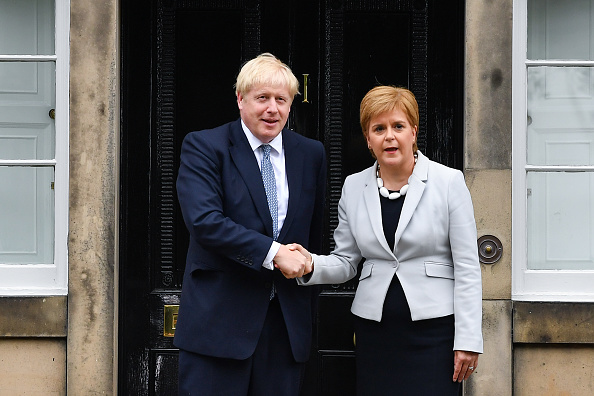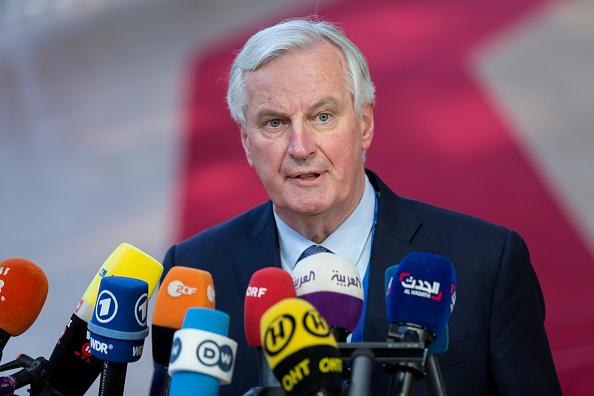KEEPING THE PARTY UNITED
It cannot be denied that being a Tory was much easier back in the day, after all you were a member of the country’s most successful political party and while differences between party members did exist, most members shared enough major stances to keep the party unified. However, Britain’s membership of the European Union has always been a major point of contention between Tory members ever since the country joined the bloc. Funnily enough, back during the 1975 referendum on the UK’s membership of the European Community, it was Labour under Harold Wilson who put the forward the question to the public. Furthermore, it was Labour which was more opposed to Britain’s membership in the bloc, as figures such as Barbara Castle was in many ways the original poster child Brexit. The reason for Labour’s contentions with the EC was due to its original socialist stances which thought that membership in the common market would hinder powers of trade unions. Meanwhile, the Tories led under their new leader Margaret Thatcher campaigned largely in favour of remaining in the common market, but that isn’t to say that all Conservative members were happy with staying in Europe. For instance, Enoch Powell, the Conservative MP who infamously gave the “Rivers of Blood” speech was opposed to the European Common market as he viewed it as a transgression on Britain’s sovereignty. In a 1975 interview Powell seemed to have predicted the future of the Tory party as he stated that he and other Tories like him would keep voicing their opposition to Britain’s membership. “As the House of Commons, week by week, has to debate the consequences of being in the Common Market, it will, as it tends to do, filter through to wider and wider areas that they were rightly told by people like Edward Heath that this in fact did mean that it (the UK) would become the province of a new state.”
As Labour started to become more centrist under Tony Blair, it no longer became the party that opposes the EU. Meanwhile, on the Tory side the EU became more of a hot topic and the party was largely seen as the one that would be able to take Britain out of the bloc. The year 1992 was a major turning point in this debate, as the Conservative government under Prime Minister John Major signed the Maastricht Treaty, which paved the way for further European integration, and other elements we are familiar with today such as European Citizenship and the EU single currency, the Euro. Many Tory MPs opposed the government’s decision and many of them opposed the governments in parliamentary votes on the implementation of the treaty. These challenging figures became known as the Maastricht Rebels and they had the support of senior members of the party such as none other than the former Prime Minister herself, Margaret Thatcher. It was around this time when UKIP was founded with the purpose of persuading the Conservatives to pull out of the treaty and the EU as a whole. The controversial decision led to Tory members leaving the party, for example a certain Nigel Farage left the Conservatives in 1993 and joined UKIP. This contention only grew as the years went by and finally culminated during the 2016 refurundum and its aftermath which showcased just how divided the party has become over the European question. Now it is up to Boris Johnson to somehow unite the party, while also making sure that he keeps his promise of taking the UK out of the EU with no ifs or buts.
As the Tories remain divided over a deal or no-deal Brexit, Jeremy Corbyn now seeks to exploit the Conservative’s darkest hour to rise up to the highest office in the country. While Corbyn has largely remained silent on his opinions on Brexit, the party dropped a bombshell last July as it announced that it would support a second refurendum. What happened? Well according to a report in The Guardian, trade union leaders recently agreed that if the Conservatives bring any new deal to parliament (or a date for leaving without a deal), then Labour should call for a second refurendum and campaign for remain. However, the union leaders also said that it Labour were to get into power before a Brexit then it should continue where the Tories left off and try to secure a new Brexit deal with the EU. While such dissaffrimance does not bode well with remainers, Corbyn and Labour are now the most viable hope for preventing Brexit. As it stands, Corbyn has said that he will table a motion of no confidence against Johnson’s government, but hasn’t said when.

DIVISIONS WITHIN THE UK
Nicola Sturgeon of Scotland’s ruling SNP hasn’t shown any enthusiam towards the new government in Westminister. Shortly after she met with Johnson for the first time, she said “this government and the path it's pursuing is dangerous” as she thinks that Johnson has steered the country towards an unavoidable no-deal Brexit. The SNP has projected Scotland’s opposition to getting out of the EU, and has repeatedly said that such a prospect in grounds for a new independence referendum. Scotland previously held an independence referendum in 2014, which saw 55 percent of the voters in favor of remaining in the UK, while 45 percent wanted out. For too long the devolved government of Scotland has complained that Westminster does not take its issues into serious consideration, and the Scottish public’s desire to remain in the EU has only highlighted this problem. Sturgeon has said that she intends to hold a second independence referendum in 2021 if the UK exits from the EU, but she also said that she would seek agreement from Westminster before doing so. But, Theresa May’s official spokesperson said that Scotland already had a referendum in 2014, and voted to remain in the UK, therefore the result should be respected.
BRUSSELS STARTS BRACING ITSELF
Then comes the Northern Irish backstop, one of the main reasons why the Tories voted down May’s agreement three times. The backstop was put in the deal to preserve the open borders between Northern Ireland and the Republic of Ireland and would place the UK in a customs union with the EU for an indefinite period of time. During his campaign, Johnson said he would remove the backstop as to ensure a real Brexit. However, Politico recently leaked a letter from Michel Barnier (the EU’s top Brexit negotiator) to EU leaders in which he said that Johnson’s demand for the backstop to be removed is unacceptable. The letter also stated that any new amendments from the UK would have to be in line with the Withdrawal Agreement, which May agreed to with the EU. As such, in one corner we have a Prime Minister who seeks to radically change up the deal with the EU and in the opposing corner we have the EU, which is determined to keep the existing Withdrawal Agreement as intact as possible. Barnier further wrote: "As suggested by his rather combative speech, we have to be ready for a situation where he gives priority to the planning for 'no deal,' partly to heap pressure on the unity of the EU27.” It is still unclear if Johnson was bluffing in his calls to take the UK out of the UK even without a deal, but it seems that the EU is preparing to call the Prime Minister’s bluff. They also seem to preparing for such a scenario as Barnier’s letter also stated:
"No deal will never be the EU's choice, but we all have to be ready for all scenarios."

As it stands, Johnson is stuck between a rock and a hard place. If he keeps his promise of a Brexit, even if it means no-deal then he risks the economic and political security of the country. If he seeks an extension he will be faced with opposition from his base and risks the prospect of Corbyn calling for a vote of no-confidence. If Johnson has the finesse and tenacity to somehow negotiate a deal that ensures continued trade relations with the EU, open borders in Ireland and a staunch exit from the EU’s political union then he might go down as one of the greatest Prime Minister’s in British history. If he doesn’t he will have to walk through the Tory walk of shame that has graced the presence of the likes of Neville Chamberlain, Anthony Eden, David Cameron and most recently Theresa May.








